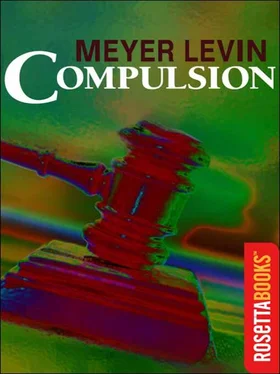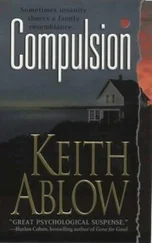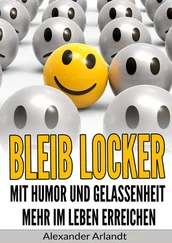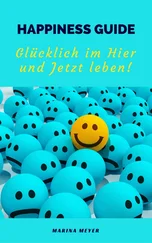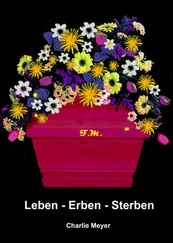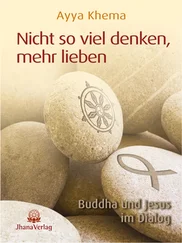I even ran out to the morgue at the county hospital and looked at the corpse, a runty, meagre body, a battered, boozy face. Had he written that note?
Certainly I knew, even as a young punk reporter, that every crime drew lunatic confessions, but downtown Chief Nolan was already declaring the crime had been solved. It was a degenerate vagrant who had murdered the boy and then tried to extort money, and finally, in fright, committed suicide.
Before it was over, the case was to reach into many such pitiful corners, like a random cyclone that leaves exposed the refuse of a city’s cellars.
I met Tom at the Bureau and gave him what I had. Between us we decided this was nothing at all, even though the morning papers were giving it their banner headlines. It was by then ten o’clock. I almost wanted to ask Tom to come along to the speakeasy, but we might seem like kids to him, I thought. So I said good night and went on to my date.
The place was a cellar night club. I ran down the stairs, slightly apprehensive about Ruth being with those smoothies, and I was curious, too, about Myra, whom I knew only from a poetry class. I felt full of importance, breathless with my impressions of the morgue and of a derelict’s death, while all they knew about was college life.
The room was a dim-lit box, with a few burly men around the doorway. Liquor was served openly there, I saw. The brassy music, slapped down by the low ceiling, made the whole box throb. This was a place already known among the knowing ones, the people like Myra and Artie who always knew ahead of the rest of the crowd.
The lighting was a subdued rose colour, on walls of a kind of yellowish stucco that was considered fancy at that time, and there was a small square dance floor. The Negro band sat on a strip of platform with their heads against the ceiling. I could not have known that in years to come jazz enthusiasts would look back reverently to this dim cellar as the birthplace of the Chicago style.
I made out first, from the stairs, Artie and Myra dancing, and even in that glimpse I caught something about Myra, the way she was entirely given over, her glossy head tilted, lost. I saw Ruth and Judd at a far table, their heads bent close together so as to hear each other under that noise. Ruth caught sight of me, raising her face, and there came over it the glow that was for me – but slowly, as though it had to be summoned, so absorbed had she been with Judd.
Artie broke off dancing and came rushing toward me. He wanted to know the news. Was the suicide really the murderer? I said it didn’t look like it. Breathlessly, Artie speculated, “Maybe it was a plant – the real murderer wrote the note and found this bum and gave him some knock-out drops and pushed him in!” We reached the table. “That would be a good move for him to get the police off the trail, wouldn’t it?”
Myra shook her head over his imaginings, and Judd said why didn’t he leave the case to the police? A chair had to be pulled up for me, and I sat at the corner of the table, feeling it was I who was the extra man since the party was a celebration for Judd.
I had seen Judd around campus, but now I had my first full impression of him, and I was made uneasy by the dark glow of his eyes in their disturbing intensity. And I felt at once that those eyes, that entire personality, fascinated Ruth.
My set-up came, and Judd poured some of his liquor into it. Artie ordered me to catch up fast. Myra said she had wanted to get to know me in the modern-poetry class – wasn’t this music like Vachel Lindsay’s “The Congo”? We recited it, Artie beating out the rhythm with spoons. Judd asked if he could dance with my girl. For a while I watched them; he seemed to keep on talking while they danced, and Ruth remained absorbed.
In the middle of the number, Artie excused himself and dragged Myra up. Then they were doing the Charleston in a spectacular way, but with great ease; presently half the floor was watching them. Ruth and Judd came back, and we clapped for Artie and Myra. The tenor saxman stood up. The drummer rattled and jerked his head to the flash of Myra’s knees.
Did I feel, already then, something heartbreakingly intense about Myra – a peak reached, yet an imprisonment, because no matter how fast, she couldn’t get free? Later, we discussed love like, oh, such emancipated people. Judd insisted that sex should be quite free and apart from love, and Myra said breathlessly that’s what it was like in Russia, where women at last were as free as men. But what about children? asked Ruth. Judd said the state should take care of all children, as was of course suggested in Plato’s Republic . Didn’t he believe in parental love? Ruth inquired, and Judd declared he didn’t believe in emotion; emotion was illogical and weak.
He was deadly serious, his eyes burning. Ruth drew him on, so understandingly, with her way of making a man feel she understood on his own level. Judd was beyond any shyness now. Ideas poured out of him.
Put down coldly, that sort of talk sounds sophomoric, and yet it sounded bright and even important at the time. Why were children supposed to have emotional feelings for their parents? demanded Judd. Did children have any opportunity to select their parents? Or even vice versa? It was pure chance – one spermatozoon out of trillions. He, for example, certainly had very little in common with his father.
Now Judd had become vehement. Myra said, suddenly, “Let’s dance,” and led me on to the floor. Artie took Ruth.
Myra moved her long bare-feeling body into contact with mine, and it seemed utterly pliant, boneless. Her head fell back a little. “Oh listen to that trumpet!” Then, with a peculiar, sudden assumption of intimacy, she asked if I were going to marry Ruth, and I said, oh, we hadn’t gone that far. “But you’re in love with her?” she repeated.
I said, “How is one supposed to know?”
“You know, I think Judd is getting a crush on her,” she remarked, and I glanced at Judd alone at the table. His eyes were following Ruth.
“What about you and Artie?” I asked, out of form.
She answered with a peculiar eagerness and sincerity. She was fond of him, Myra said, since they had been kids, but of course Artie had a million girls. “Artie’s just a baby,” she confided. “He’s so immature. Although sometimes I do get worried for him. He has black moods – you wouldn’t imagine it. He’s deeper than he lets on.” Then suddenly Myra thrust her belly in and belly-rubbed for an instant. As the dance broke and we started back to the table, she said, “You know I’m just a tease. I try to prove to myself I can get every man I meet away from his date.” She squeezed my hand. “Friends?”
“Sure,” I said.
Ruth was flushed and so beautiful as she sat down. I looked from one girl to the other.
Myra made me talk about being a newspaperman – was it the best way to become a writer? – and I described going to the scene of the murder. We were on the favourite subject again. Artie got all excited about our interview with Captain Cleary about who hung out at the swamp. Nature lovers. Did I know that Judd was a big natural scientist? He had discovered some very rare bird – a crane or stork.
Ruth became quite interested, drawing Judd out, and soon we were discussing Judd’s question. Did birds have intelligence? He was convinced they could think. Thinking was choosing, he said, between one set of acts and another.
“Bushwah, it’s all mechanical reaction,” Artie declared. Every action had a mechanical cause – and from there we were soon on the question of free will. “With humans, too, it’s all mechanical,” Artie shouted. The trumpet was screaming high, but Artie outyelled it, in some passion to prove his point. “Schopenhauer!” he cried. “He proved there is no free will. We are all a bunch of slaves to our instincts!”
Читать дальше
